
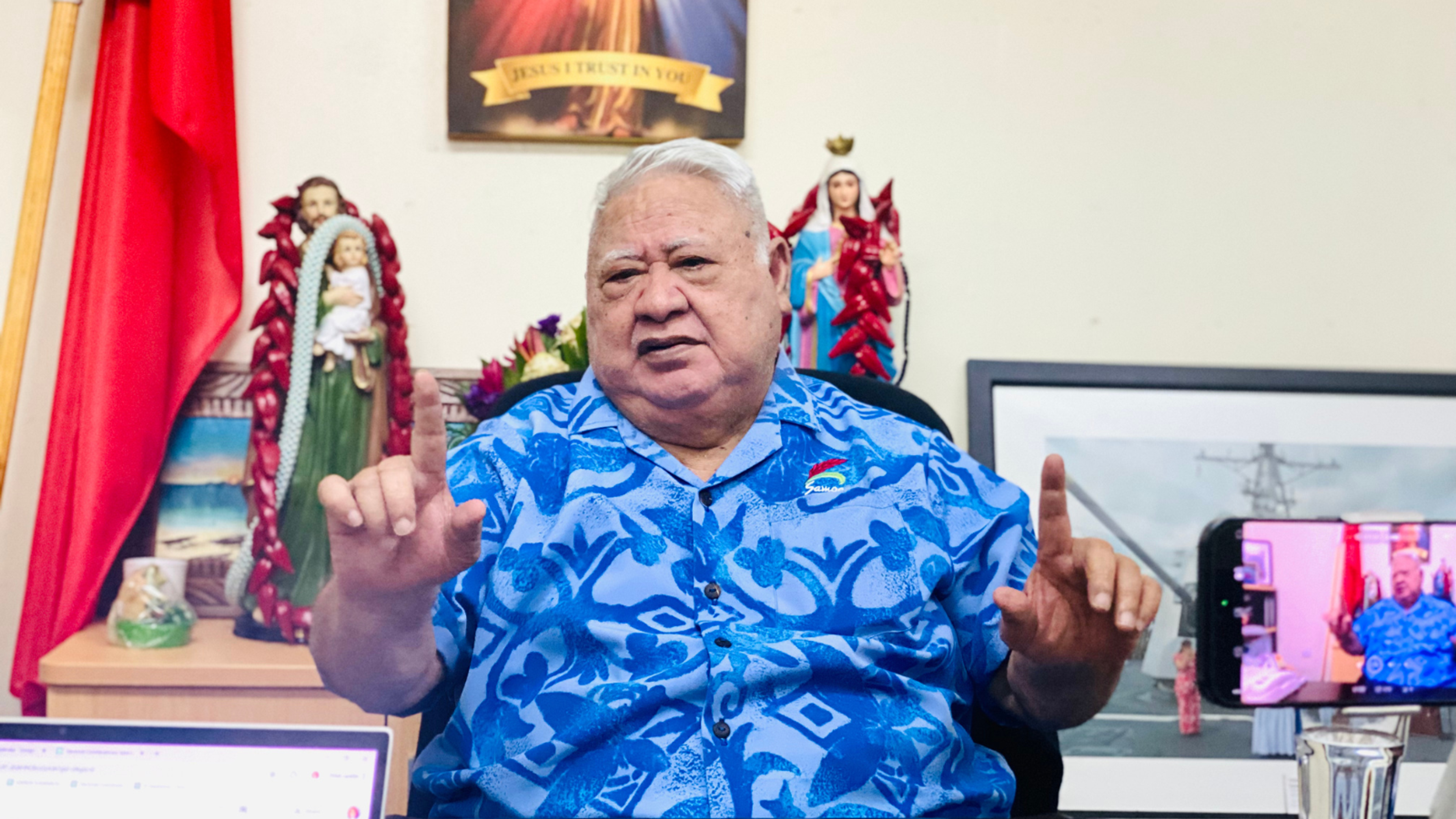
Tuilaepa Sailele Malielegaoi says the defining issue for voters this week is a question of leadership.
Photo/Anetone Sagaga
Tuilaepa warns of 'greater mess' if rivals win Sāmoa election
As political divisions deepen, the HRPP leader and former Prime Minister emphasises leadership and integrity over mere policy promises.


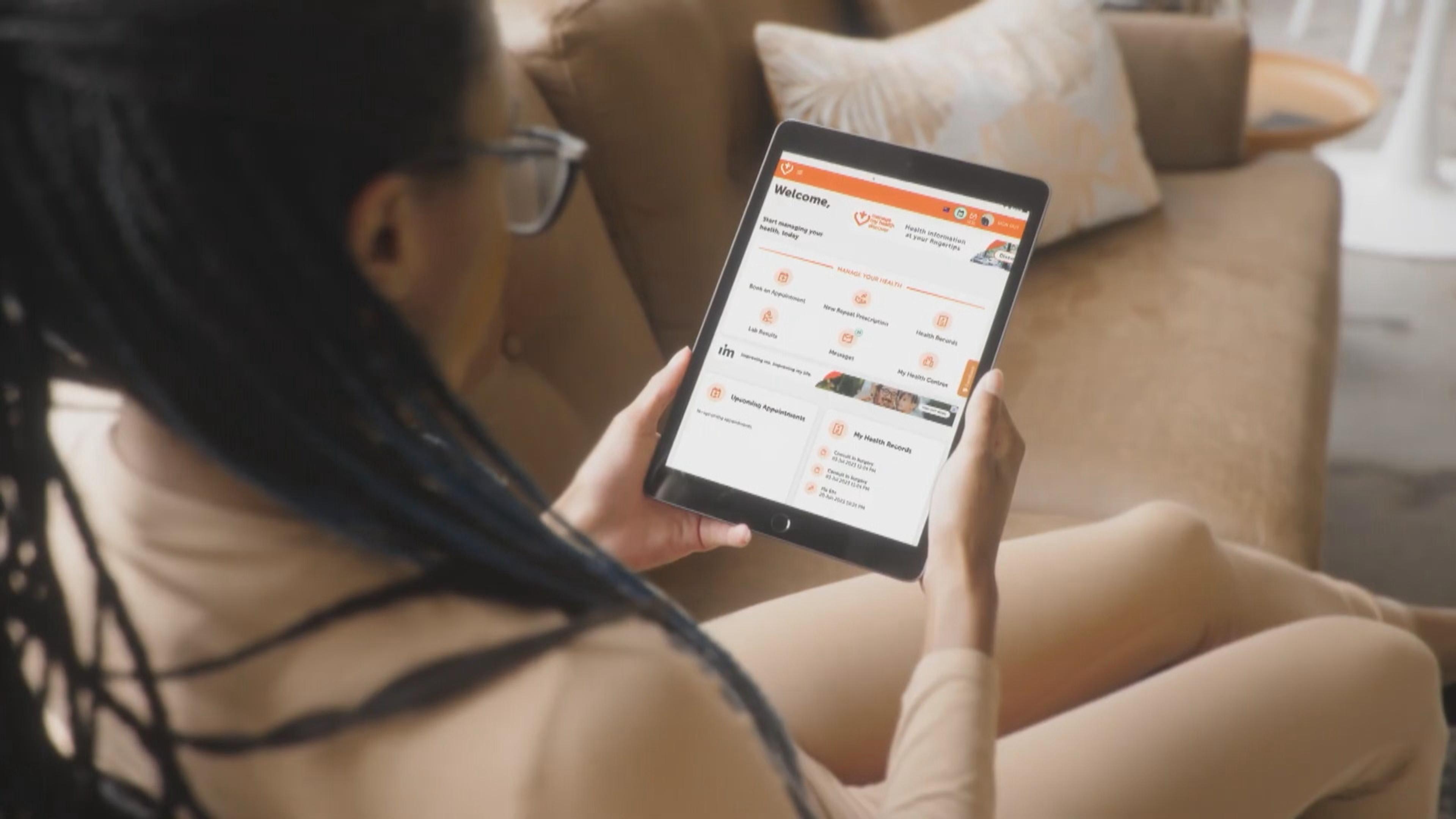

Musicians warn AI could strip the soul from island sounds





Musicians warn AI could strip the soul from island sounds

This week’s election in Sāmoa is being called one of the most consequential in decades.
At the heart of the contest is former Prime Minister Tuilaepa Sailele Malielegaoi, who, after four decades in Parliament and four years in opposition, is determined to prove that the Human Rights Protection Party (HRPP) is the only viable choice to restore stability and prosperity to Sāmoa.
PMN News sat down with the elder statesman of Sāmoan politics over the weekend in Apia to discuss his views on leadership, lessons learnt from previous elections, and his vision for the next five years.
He believes this ambitious plan will restore confidence in the government both at home and abroad. The party’s campaign, however, is not only about promises on paper but about who is fit to lead - a question Tuilaepa believes lies at the centre of this election.
When asked about the defining issue for voters, Tuilaepa did not hesitate. “To me, the major issue that the voters have to address … is the question of leadership. If the voters opt again to vote for Fiamē or Laauli, I can tell you this country would be in a greater mess than the three and a half years that they ran this country.”
Sāmoa’s elections on 29 August were announced in June following the FAST government’s internal leadership issues, which resulted in a split within the party, a failure to pass the 2025/2026 budget, and the subsequent dissolution of Parliament.
Listen to an edited version of Tuilaepa Sailele Malielegaoi's interview on Pacific Mornings below.
Fiamē Naomi Mata’afa has since formed the new Sāmoa Uniting Party (SUP), while Laaulialemalietoa Leuatea Polataivao Schmidt has taken over as Chairman and Leader of Faatuatua i le Atua Sāmoa ua Tasi (FAST).
Tuilaepa’s confidence in HRPP’s chances of returning to executive leadership is based on positive community responses to their campaign rallies. This election cycle, HRPP adopted the FAST-style roadshow format, visiting every electoral district across the main islands of Sāmoa and increasing its media presence.
The former prime minister contrasts his own leadership style with that of caretaker Prime Minister Fiamē Naomi Mataʻafa, who, after breaking away from HRPP, has led both FAST and now SUP.
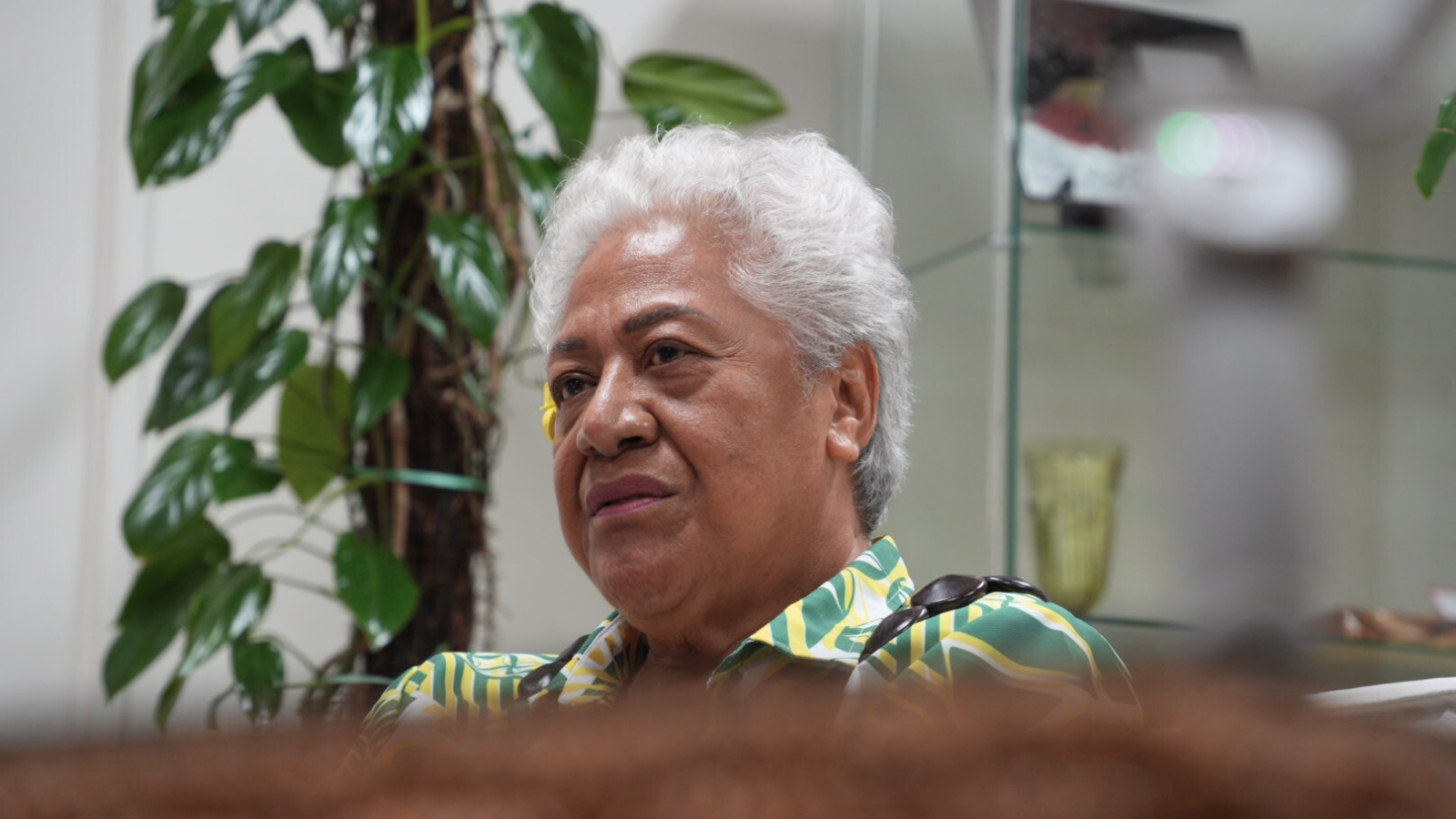
Fiamē Naomi Mataafa has been the Prime Minister of Sāmoa since 2021, and currently heads a minority caretaker government. Photo/Anetone Sagaga
Fiamē described her approach as more hands-off, allowing ministers greater freedom in decision-making. In Tuilaepa’s view, this leads to poor governance.
“When I was Prime Minister, I followed the process,” he explains, describing how any cabinet submission required reports from the Treasury on economic viability, from the Attorney-General on legality, and from sector ministries on practical implications.
“Fiamē disliked this process. She preferred to let the minister responsible do whatever the minister wants without interference from the cabinet. That is a response from a leader that has never worked in government … She lacked the experience of transparency and accountability, principles of good governance.”
For Tuilaepa, the principle of collective responsibility is not just a formality but is a safeguard against chaos.
“Once that principle is not observed, then you will have a cabinet that will fight amongst themselves and the prime minister loses control.”
He recounts an early indication of Fiamē’s individualism, which led to her departure from HRPP, when she voted against the party in parliament on a matter relating to the President of the Land and Titles Court.
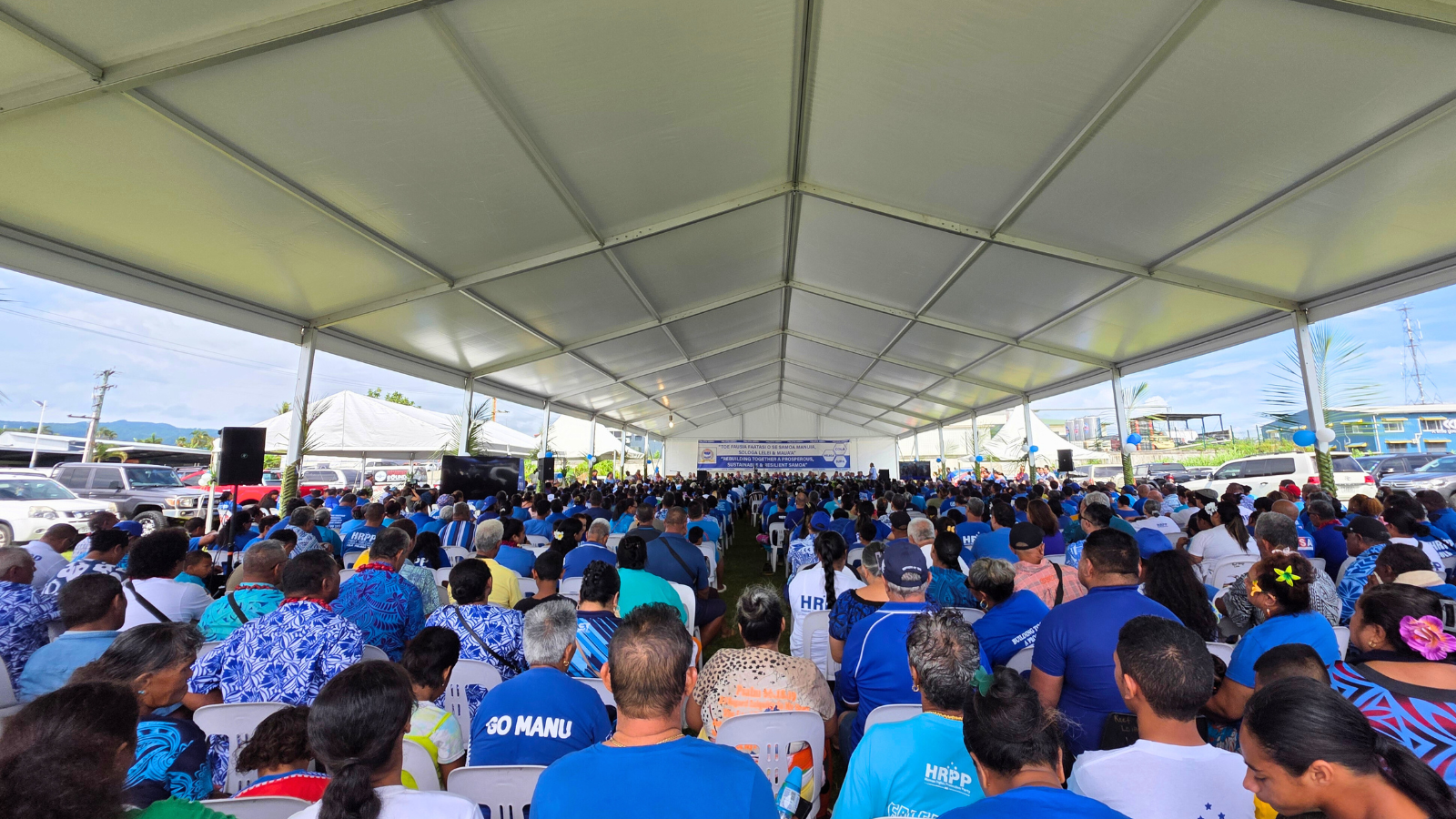
Adopting the FAST style of political rallies in every district has been one of the strategic changes made by HRPP for the 2025 election season.
“That was the first breach of the principle of collective responsibility,” he says. “I stood up in parliament and told her, right, you should be sacked from the cabinet. In the meeting that followed, she apologised to me. That was the beginning of her end.”
The shadow of the 2021 election still looms large for Tuilaepa. Despite the historic failure to return to power, he insists it is not a simple rejection of his leadership.
“There were many issues which caused our fall. A major downfall … was the failure of members of parliament to accept the simple truth that if you have too many members standing for one seat, the vote will spread out so much that a candidate from another party with a small number of votes taken would win.”
Those lessons have shaped HRPP’s election strategy this time around.
He points out that HRPP had the popular vote with around 60 per cent of the tally, compared to around 30 per cent for FAST, but victory was given to Fiamē and Laauli’s new party because of the split vote.
“Winston Peters raised this when he was here. He could never understand why the HRPP lost when 60 per cent of the population voted for the HRPP candidates.”
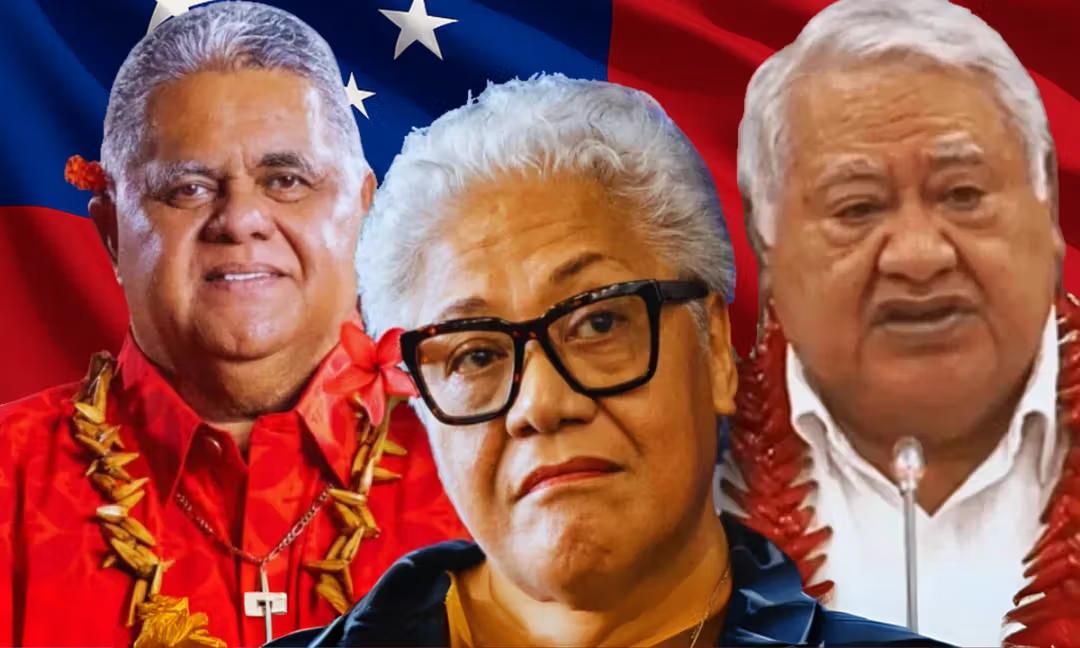
The key players, from left, Laaulialemalietoa Leuatea Polataivao Schmidt, Fiamē Naomi Mataʻafa, and Tuilaʻepa Saʻilele Malielegaoi. Photo/RNZ Pacific/123RF/Samoa Government/FAST Party
Another major factor was the one-million-tala constituency promise made by FAST.
“For the first time, people were driven mad,” he says. “Each one thinking that a million dollars will cure all his or her problems … When the FAST government took over, it wasn’t the case. Instead of cash… wheelbarrows and spades were distributed.”
He believes disillusionment in communities has created an opportunity for the HRPP to present a grounded alternative that is both corrective and forward-looking. At the centre of their proposal are three signature poverty alleviation pledges: COLA, a $300 annual payment to every citizen; PELEGA, which offers increased pensions for the elderly; and SUPA, which provides assistance for people with disabilities, along with new-born bonuses and vaccination incentives.
“People don’t want to be given things they didn’t ask for,” Tuilaepa says. “They want money to buy food for their children … So we decided to help our people by putting up these three broad categories of help to ease the pressure of the high cost of living.”
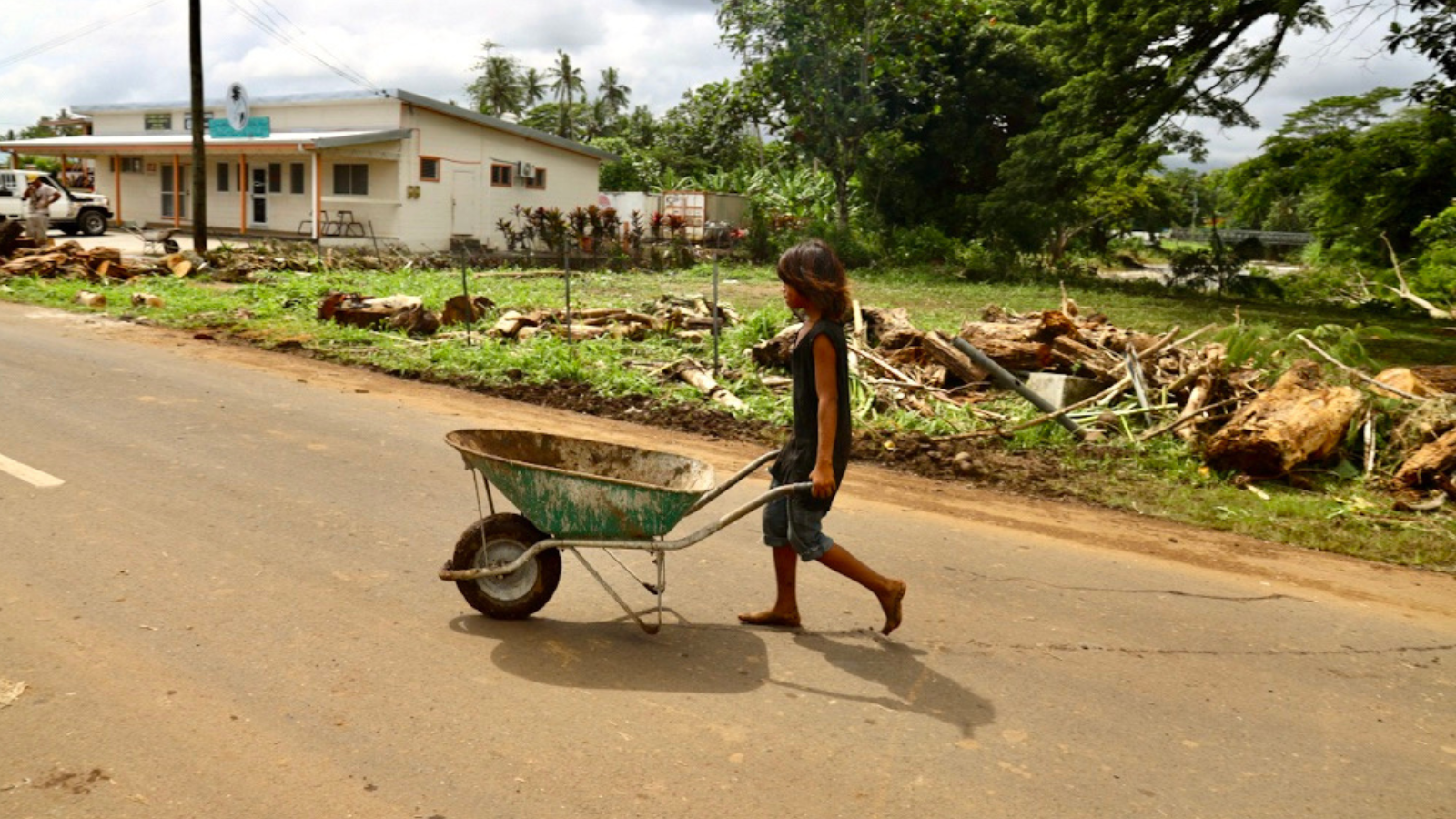
The Fono Faavae under FAST allowed districts to decide how they would spend their million tala allocation. Photo/Anetone Sagaga
The manifesto also promises hospital upgrades, renewed access to overseas treatment, and a better supply of medicine. It also offers teacher provisions for salaries at mission schools, tertiary grants, and expanded scholarships. Farmers will get tax breaks, financial aid, and export support. Infrastructure improvements include road works, renewable energy initiatives, and a proposed bridge between Savai’i and Upolu by 2035. Businesses will benefit from tax holidays and loans, schools will receive free Wi-Fi, and Savai‘i will see a redeveloped Salelologa with new offices, hospitals, schools, and a multipurpose stadium.
Such an ambitious programme has drawn scepticism, with critics doubting whether it can be delivered within the promised 100 days. For many voters, policy pledges are weighed against trust in leadership. Tuilaepa insists HRPP’s track record speaks for itself, pointing to Sāmoa’s graduation from “least developed country” status in 2014.
“Our donors have always favoured us because of transparency and accountability,” he says, recalling how development partners supported Sāmoa under HRPP’s stewardship. “They know that what they give us we use properly.”
FAST, meanwhile, has repeatedly accused HRPP of mismanagement and corruption. Tuilaepa dismisses the allegations as politically-motivated, citing the forensic audit commissioned by the current government.
Watch PMN News Senior Reporter Renate Rivers' update from Apia below.
The audit investigated major projects under Tuilaepa’s administration, including the Vaiaata Prison, Ti’avea Airport, Satitoa Wharf, and the National ID scheme. Caretaker Finance Minister, Lautimuia Uelese Vaai, confirmed last April that the original list of 20 projects set for review was reduced to 13 due to budget limits and the tight turnaround time for the auditor.
“This government stupidly thought that we did [something] wrong,” Tuilaepa says. “They wasted 1.5 million (about NZ$900,000) to fund a forensic audit, which, up to now, there’s no report. What we gathered was that there was really nothing serious.”
In a recent interview with PMN Sāmoa on 531pi, Fiamē says the audit report was before Cabinet, and her first impression of it was that there were no major red flags.
For Tuilaepa, governance is not only about managing funds but also about protecting communities, with the meth epidemic being a major concern.
He says the solution lies in stronger policing, closer collaboration with village chiefs, and tougher sentencing.
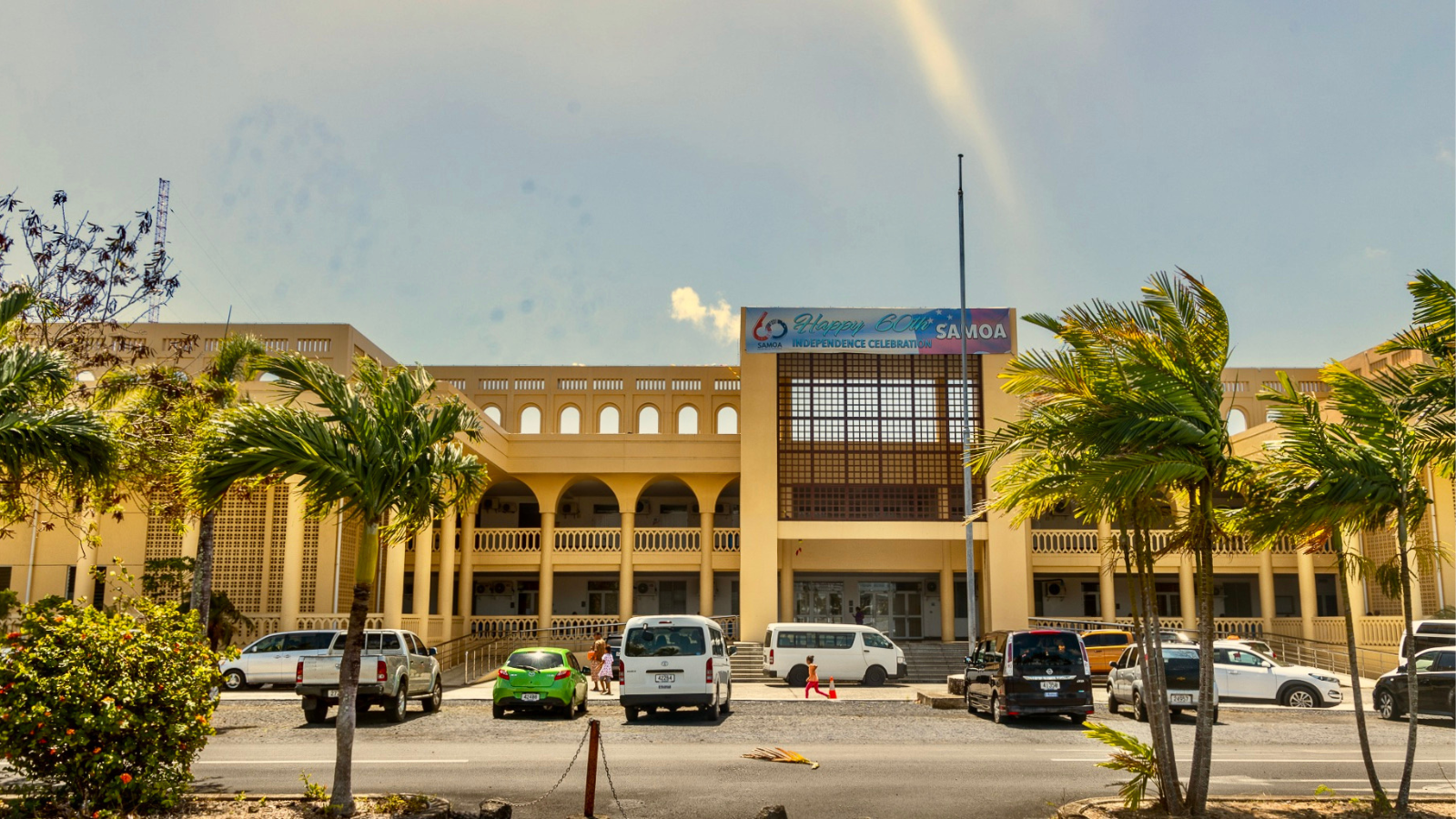
Tuilaepa says the meth problem needs support from the Courts, starting with longer sentences on drug offenders. Photo/Anetone Sagaga
“The legislation is there… we have a court that does not agree with recommendations from the police. They let people out, and they repeat what they did. “We need to fix the law so that sentencing is not less than the maximum.”
He also pointed to the return of deportees from overseas and customs delays as key contributors to the drug trade.
Tuilaepa’s relationship with Sāmoa’s diaspora has often been strained, and when asked if his opinion has softened, he suggests that misinformation has misled many people overseas.
“They don’t understand what is happening here. A lot of them base their accusations on false reports. “What we have done to help the diaspora understand is to have these live interviews. And those who listen to our interviews have come around.”
Sāmoa’s local media bodies have mirrored the country’s political divide, with some newsrooms and broadcasters aligning themselves with political parties.
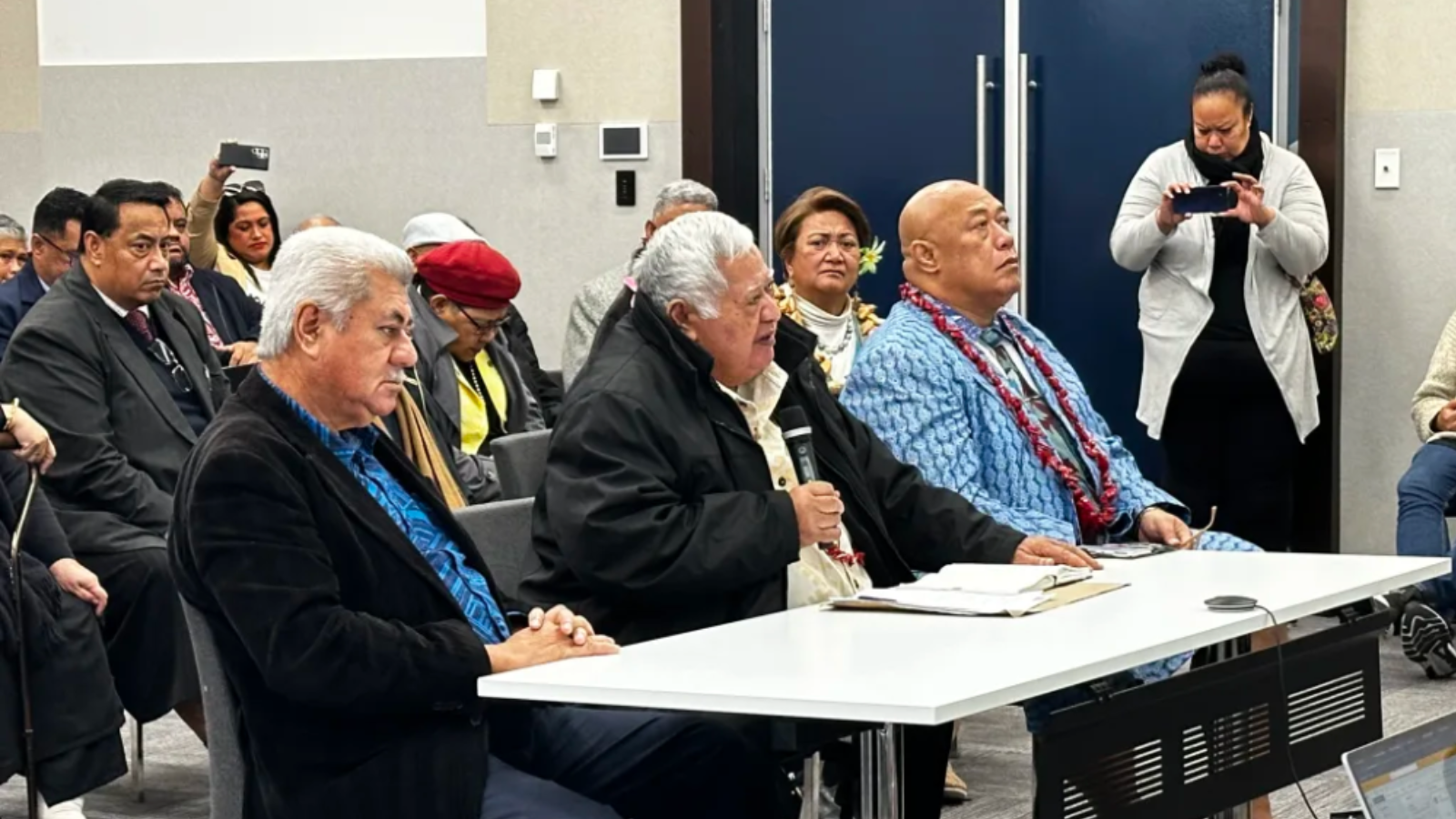
Tuilaepa led the HRPP submission in support of the Restoring Citizenship Removed by Citizenship (Western Samoa) Act Bill. Photo/RNZ
The current Reporters Without Borders global index on press freedom lists Sāmoa at 44 out of 180, a major drop from 2024, when it ranked 22nd.
Sympathetic to the work of the media, Tuilaepa says his role as Spokesman for Cabinet in the 1980s taught him the importance of being open to journalists.
“Very early on, I knew it is very important to have an open-door policy for the media. It is their job, and the people also want to know what the government is trying to do.”
Still, he noted the commercial pressures faced by local media outlets, acknowledging that “a lot of the media are opinionated … They do want to sell the news. People want things that look very bad in order to sell...”
Beyond domestic affairs, Tuilaepa is attentive to regional issues in the Pacific. In contrast to Fiamē, Tuilaepa criticised the Solomon Islands Prime Minister’s move to restrict participation in the upcoming Pacific Islands Forum discussions.
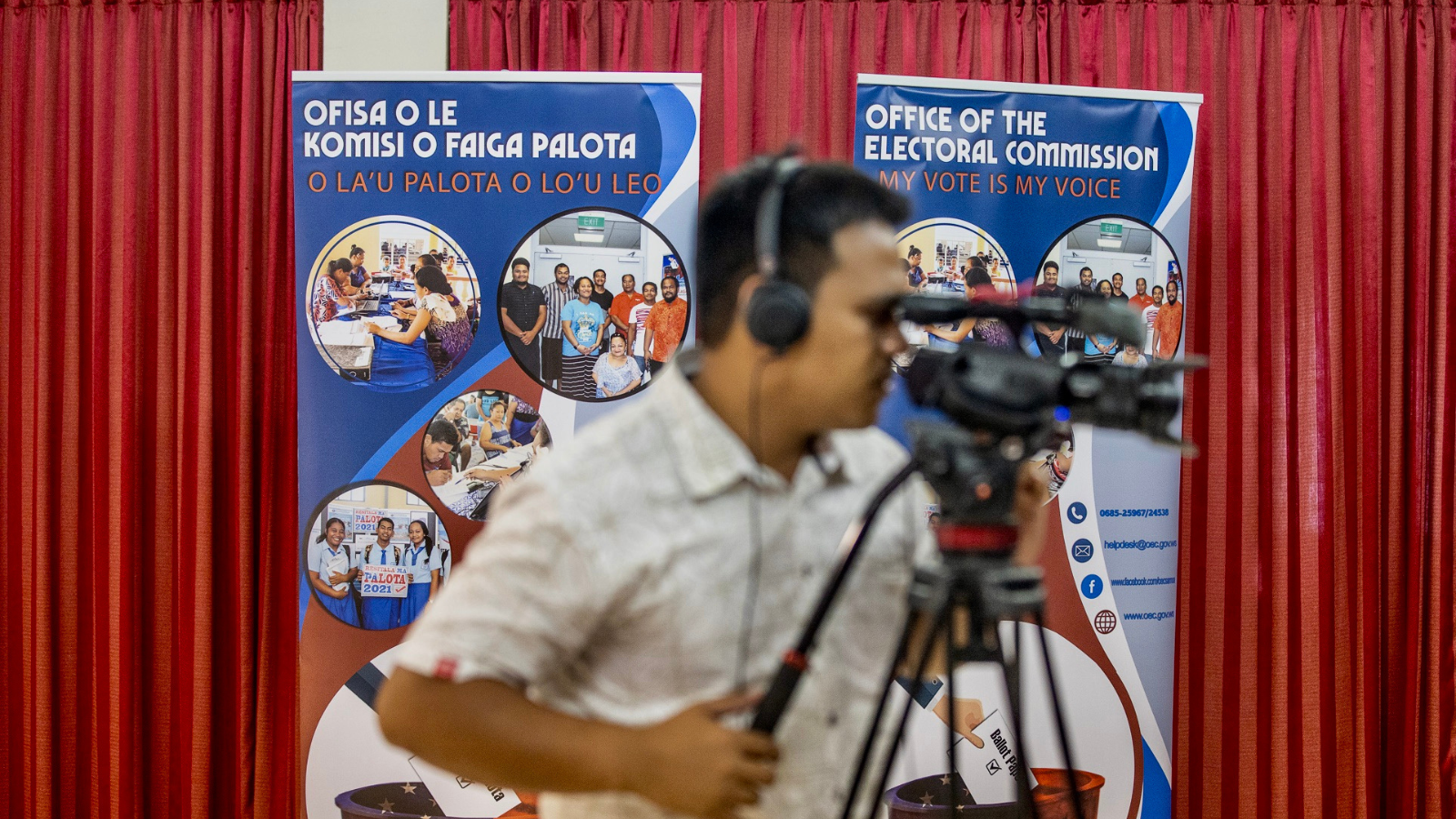
Coverage of the election season is one of the busiest times for Sāmoa's media houses. Photo/Anetone Sagaga
“To me, that is a decision that should be made by the leaders of the Pacific Forum, and it should never be allowed to be decided by one country alone.”
Reflecting on his long career, the Former Prime Minister acknowledges both criticism and praise. At over 80 years old and with more than four decades in Sāmoa’s legislative assembly, Tuilaepa remains a polarising figure.
When asked what he is most proud of over the last four years in opposition, he pointed to HRPP’s record of challenging the government in court.
“The greatest thing is the way we have taken to sue the government for every breach they make.
“If we don’t do it, no one will … Only the HRPP can be the mouthpiece for the whole population who are unhappy.”
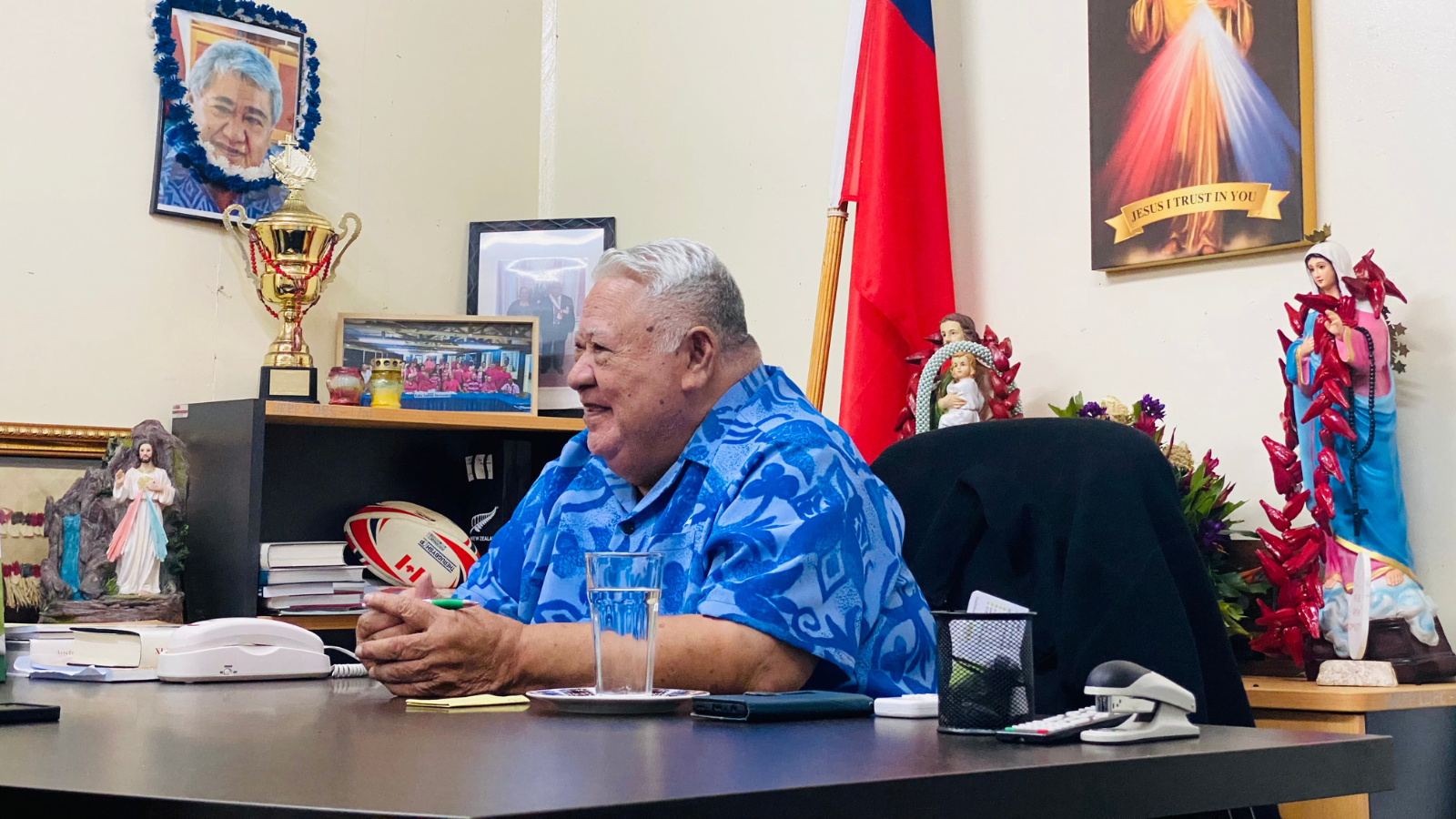
Tuilaepa - the polarising elder statesman of Sāmoan and Pacific politics. Photo/Anetone Sagaga
As the election approaches, Tuilaepa frames the choice for voters as one of truth and resilience.
“It is not the power that is stronger,” he said, quoting a Sāmoan proverb - "E lē moni le malosi, a e malosi le mea moni, it is the truth that is much stronger than power."